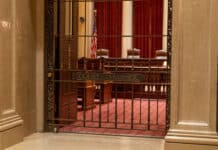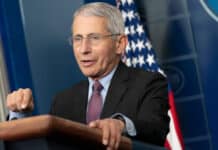The Minnesota Court of Appeals has ruled that a college instructor is not entitled to unemployment benefits after he was fired for refusing “to abide by his employer’s COVID-19 vaccination and testing policy.”
Three appeals court judges agreed last Tuesday that Michael Larson, an English teacher for Minnesota State College Southeast-Winona (MSCS), committed employee misconduct by failing to follow its COVID vaccine and testing requirements, which means he is not eligible for unemployment benefits per state law.
Minnesota Statutes define employee misconduct as “any intentional, negligent, or indifferent conduct, on the job or off the job, that is a serious violation of the standards of behavior the employer has the right to reasonably expect of the employee.”
Larson sought exemptions from the vaccine, testing, and mask-wearing, as well as accommodations to teach one course in-person, one course online, and to have a hybrid course reassigned to another instructor.
But after none of his “unreasonable” accommodations were met, Larson continued to ignore the vaccine and testing requirements, and he was suspended twice before ultimately getting fired in December 2021.
In its opinion the appeals court also agreed with a previous ruling by an unemployment law judge (ULJ) that MSCS’s vaccine and testing requirements were “reasonable,” and that Larson’s objections to the requirements “were not based on sincerely held religious beliefs.”
According to the opinion, Larson’s religious exemption request cited a 1952 address by Pope Pius XII titled “The Moral Limits of Medical Research and Treatment,” in which the pontiff questioned whether public authorities can “limit or even suppress the right of the individual over his body and life, his bodily and psychic integrity.” Larson’s request also included an endorsement letter from a priest.
Although the appeals court noted that sincerely held religious beliefs are not grounds for denied unemployment benefits, the opinion cited Larson’s own testimony before the ULJ to show that his objections to the vaccine and testing were based on “secular views.”
“The ULJ … asked, ‘[S]o what are the reasons that you don’t want to say yes to the vaccine?’ Larson said, ‘Well … that has to do with … very much substantial doubt about efficacy and safety regarding the vaccine,'” according to the opinion.
The court also cited testimony in which Larson called a swab test a “better and more tolerable medical intervention.”
“Larson thus had noninvasive alternatives for complying with the COVID-19 policy, which according to his own testimony, would not have interfered with his religious beliefs. We therefore discern no basis to reverse the ULJ’s finding that Larson’s refusal to adhere to the COVID-19 policy was based on secular, not religious reasons,” the opinion concluded.


















